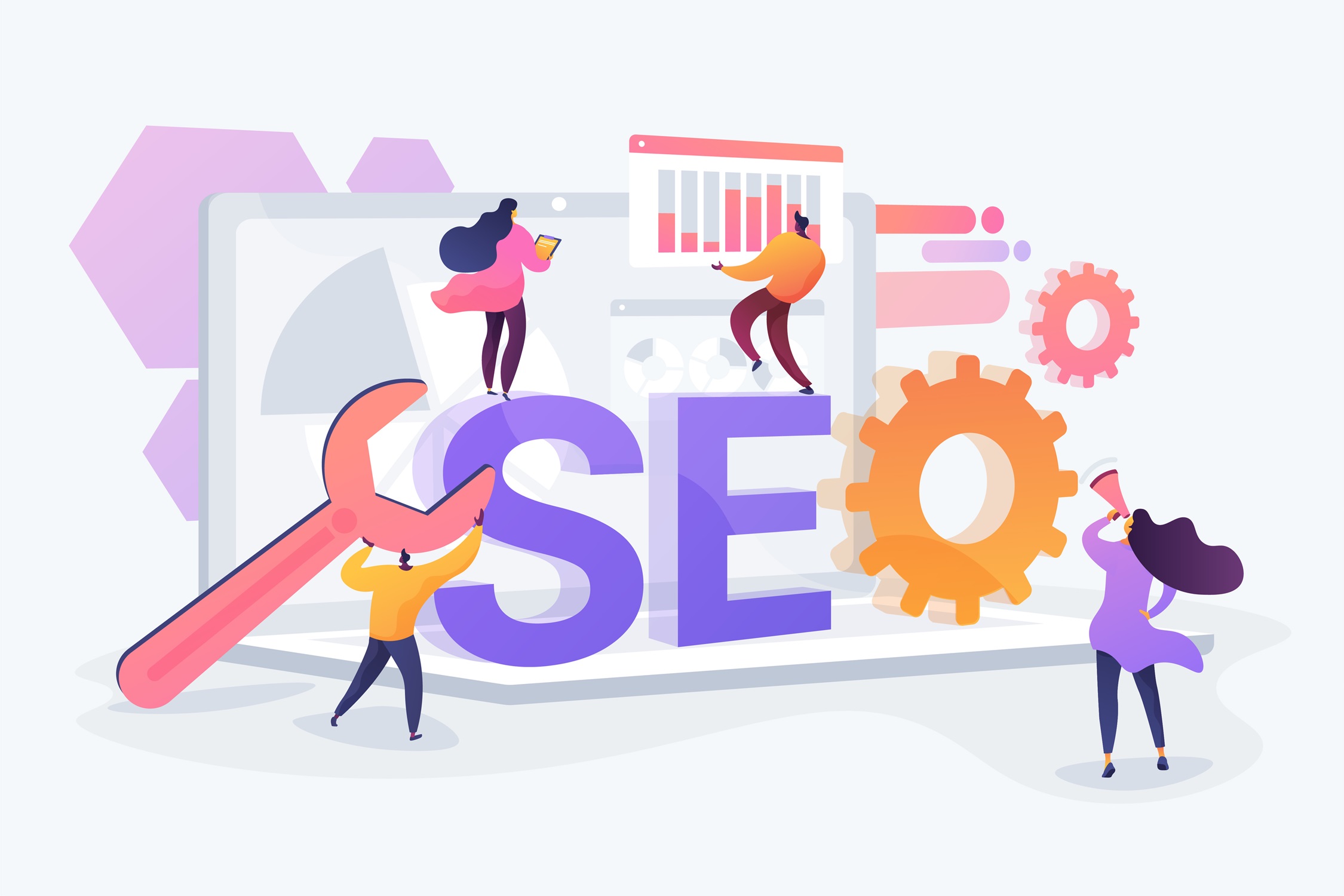Generative Engine Optimization (GEO) is the practice of optimizing your content so AI-powered search engines can understand it clearly and cite it directly in their generated answers.
Artificial intelligence is proliferating every aspect of our lives, doubly so on the internet. It’s revolutionizing how people search, compare information, and choose local businesses. Users get direct answers from Google’s AI Overviews and ChatGPT instead of parsing a list of links. That’s why businesses need new strategies for AI-powered search that go beyond the traditional ranking we’ve grown accustomed to. If you’re wondering whether SEO is still relevant, read Is SEO Worth It in the Age of AI?
Generative Engine Optimization helps businesses appear inside these AI-generated answers. It offers a path for local brands to become the sources AI relies on when forming summaries, recommendations, and explanations. Let’s explore how GEO works, why it matters, and how local businesses can leverage it to stay competitive in this new AI epoch.
Quick Answer: How Generative Engine Optimization Works
Generative Engine Optimization works by structuring your content so AI models can understand, trust, and cite it in their answers. GEO emphasizes context-rich writing, strong local authority signals, clear Q&A formatting, and structured data that helps AI parse information. Instead of only ranking in search results, GEO positions your business to appear directly inside AI-generated responses across Google, ChatGPT, Perplexity, and similar platforms.
What Generative Engine Optimization Means for Modern Businesses
Generative Engine Optimization is the process of making your online content easy for AI systems to read, interpret, and reference in their responses. Traditional SEO involves ranking in that list of links, while GEO means aiming straight for those AI summaries. What determines whether the summaries include your content? Clarity, context, and authority.
For local businesses, this means a better chance of appearing for queries like “best plumber near me” or “dentist in NJ.” GEO helps small companies appear beside national brands in AI answers through strong expertise, structured content, and local authority. For more context on how these two approaches compare, visit SEO vs. GEO: What Every Business Owner Must Know in the AI Era.
Why GEO Complements Traditional SEO
- GEO strengthens entity signals that SEO already depends on.
- GEO improves how large language models interpret content.
- Both work together to maximize visibility across SERPs and AI-generated results.
Why Generative Engine Optimization Is Critical for Local Businesses in 2025
AI-generated responses appear in many searches involving home services, healthcare, and legal needs. These are categories where users look for fast, accurate answers. Often, they don’t have time to scan through a list of links. When AI gives an answer, it may reference only a small number of trusted sources.
Local businesses that adopt GEO can increase their chances of being cited in these results. This is particularly important for businesses that rely on “near me” searches, voice assistants, and mobile discovery. GEO prepares local businesses for all three. You can dive deeper into this trend with Is GEO Replacing SEO? What Every Business Owner Needs to Know in 2025.
Top Reasons GEO Gives Local Brands a Competitive Edge
- AI Overviews show up for many local-intent searches like “emergency AC repair near me.”
- AI prioritizes detailed, trustworthy, expert-backed information.
- Local businesses can compete with national brands through better context and clarity.
- Voice search queries often match GEO-friendly formats and Q&A structures.
- Early GEO adoption sets businesses up for long-term visibility as AI search expands.
Real-World Examples of GEO in Action
- A dentist appearing in a Google AI Overview for “best Invisalign dentist NJ.”
- A contractor cited in a generative answer for “how to fix roof flashing.”
- A lawyer referenced in an AI summary for “wrongful termination laws in New Jersey.”
Exactly How Generative Engine Optimization Works Behind the Scenes
Create Content AI Can Understand and Trust
AI models choose sources that provide complete, self-contained explanations. They look for pages that answer a question fully and clearly. The ideal content for this explains what something is, how it works, and why it matters.
Longer, comprehensive pages give AI more context to understand your authority. Posts between 1,200 and 2,000 words tend to perform well because they give AI more ammunition to accurately map your expertise. For a full walkthrough on adapting your SEO strategy, see From SEO to GEO: How to Optimize for Generative AI Engines in 2025.
Common GEO Pitfalls to Avoid
- Publishing thin content that doesn’t fully answer questions.
- Overusing keywords instead of strengthening context.
- Forgetting to update older posts with current information.
Format Content the Way AI Models Prefer
AI tools rely on clear question-and-answer formatting, especially for local-intent queries. Adding FAQ sections to service pages takes a lot of friction out of AI’s answer extraction. This is also essential for voice search, which pulls from conversational phrasing.
Best practices include:
- Matching how real users ask questions.
- Keeping answers direct and structured.
- Including follow-up questions that expand on key topics.
Example GEO-Friendly Q&A Formats
- “What does a mold inspection include in NYC?”
- “How long does it take to install a tankless water heater?”
- “What is the best time of year to replace a roof in NJ?”
Strengthen Your Business’s Entity Signals
AI systems map businesses through entities like names, services, and locations. Consistency strengthens your identity and helps AI verify your information. This makes it easier for AI to cite you when generating summaries for local searches.
Enhance entity clarity with:
- A detailed About page describing your expertise.
- Location pages covering towns, counties, and service areas.
- Consistent use of your business details across the web.
Important Entity Types for Local Businesses
- Business name and variations
- Service categories
- Cities and service areas
- Certifications and expertise areas
Boost the Authority AI Uses to Validate Your Business
Authority matters even more in an AI-first world. AI looks for businesses with strong expertise signals, reliable content, and positive reviews. Large language models weigh these factors when deciding to trust your content.
Key authority signals include:
- A strong content library covering your services.
- Up-to-date service pages with clear explanations.
- Reputable backlinks and citations.
- Recent positive reviews on major platforms.
- Clear authorship or expert attributions where relevant.
How AI Evaluates Trustworthiness
- Completeness of information
- Consistency across platforms
- Freshness of content
- Real-world reputation signals
Use Structured Data to Help AI Read Your Content Correctly
Structured data helps translate your content into a language AI systems can understand. It highlights which parts of your page represent answers, instructions, addresses, or reviews. When your site uses structured data properly, AI can parse content faster and more accurately.
Best Schema Markup Types for GEO Success
| Schema Type | Purpose | Best Local Use Cases |
| LocalBusiness | Confirms business details | Any small business serving local customers |
| FAQPage | Highlights Q&A content | Blogs and service pages |
| HowTo | Breaks down instructions | Contractors, repair services, legal steps |
| Article | Clarifies authorship and topic | Blogposts and guides |
| Review | Reinforces trustworthiness | Health, home services, legal, restaurants |
Schema Mistakes to Watch For
- Incomplete markup
- Using FAQ schema without actual FAQs
- Forgetting LocalBusiness schema on service pages
Align Your Content With AI Intent and User Needs
AI systems have much looser interpretations of search intent than traditional search algorithms. They look for content that answers what the user meant, not necessarily the exact words typed. Thus, content should revolve around purpose, clarity, and user needs.
AI prioritizes:
- Direct definitions.
- Hands-on instructions.
- Local expertise and regional relevance.
- Clear, simple formatting without fluff.
Improve Local Visibility With GEO-Focused Optimization
Local businesses can benefit most from GEO because AI often chooses sources with strong local authority. AI-generated answers for searches like “AC repair near me” or “NJ employment lawyer” draw from businesses with local expertise.
Important local GEO elements include:
- Location-rich service pages with town-specific details.
- Local FAQs covering issues common in your area.
- A complete and active Google Business Profile.
- Consistent NAP information across directories.
- Local backlinks from news sites and community partners.
Local Signals AI Trusts Most
- Accurate map listings
- High review quality
- Local citations with matching details
- Regionally targeted content
Track Your GEO Performance and Adjust
GEO is an ongoing strategy. AI systems update their methods, so monitoring how often your content appears in AI responses is imperative. This helps identify which pages need improvement.
Helpful monitoring steps include:
- Checking for your brand in AI Overviews.
- Searching for your business inside ChatGPT or Perplexity.
- Watching performance of “near me” and local-intent queries.
- Refreshing older posts with updated context and clearer structure.
How GEO Works (Quick Reference)
- Build high-quality, context-rich content.
- Use Q&A-formatting for AI readability.
- Strengthen entity consistency across pages.
- Develop strong authority and expertise signals.
- Add structured data to support AI parsing.
- Align content with user intent and AI behavior.
- Improve local signals and service-area relevance.
- Check AI performance regularly and update pages.
Who Benefits Most From Generative Engine Optimization
GEO is especially effective for:
- Home service companies (plumbers, HVAC, electricians).
- Medical and dental practices.
- Local attorneys and small law firms.
- Restaurants, hospitality, and personal services.
- Real estate agents and mortgage brokers.
- Contractors and remodeling companies.
Any business that relies on “near me” searches gains immediate value. For a deeper breakdown of GEO’s business advantages, explore What Are the Benefits of GEO? Why NJ Businesses Must Embrace AI-Driven SEO.
GEO vs. SEO: What Local Businesses Need to Know
| Feature | Traditional SEO | Generative Engine Optimization |
| Main Goal | Rank high in SERPs | Be cited in AI-generated answers |
| Focus | Keywords, backlinks, and page authority | Context, structure, and trust signals |
| Target | Human readers | AI models + human readers |
| Content Style | Keyword-focused | Direct-answer, context-rich |
| Best Use Case | Traffic | AI citation + visibility |
How Local Businesses Can Begin Implementing GEO Now
Step-by-Step Checklist for Deploying GEO Strategies
- Audit top pages for clarity and answer formatting.
- Add structured data across key URLs.
- Build content clusters for all towns served.
- Strengthen Google Business Profile categories and descriptions.
- Add robust FAQ sections to core service pages.
- Collect and manage customer reviews consistently.
- Pursue local link-building and citations.
- Track AI Overviews and adjust content accordingly.
- Highlight expertise and experience on every page.
- Convert high-performing pages into Q&A-style content.
Key GEO Takeaways for Local Business Owners
- GEO helps businesses appear inside AI-generated answers.
- AI relies on clarity, authority, and structured data.
- GEO is powerful for “near me” and local-intent searches.
- Local businesses can outrank national brands in AI summaries.
- GEO and SEO work best when implemented together.
- GEO is the next competitive edge in AI-driven discovery.
Why GEO Matters More Than Ever
Generative Engine Optimization gives local businesses a competitive edge in visibility in the AI-first search environment. As more consumers rely on AI-generated summaries, conversational answers, and zero-click results, optimizing for generative AI becomes a necessity. GEO strengthens your ability to deliver structured, trustworthy information that AI systems prefer.
By combining AI-powered search optimization with strong local signals and ongoing authority building, your business can stay visible across both traditional and AI-driven platforms. GEO positions local brands to compete, stand out, and thrive in the next phase of search.





